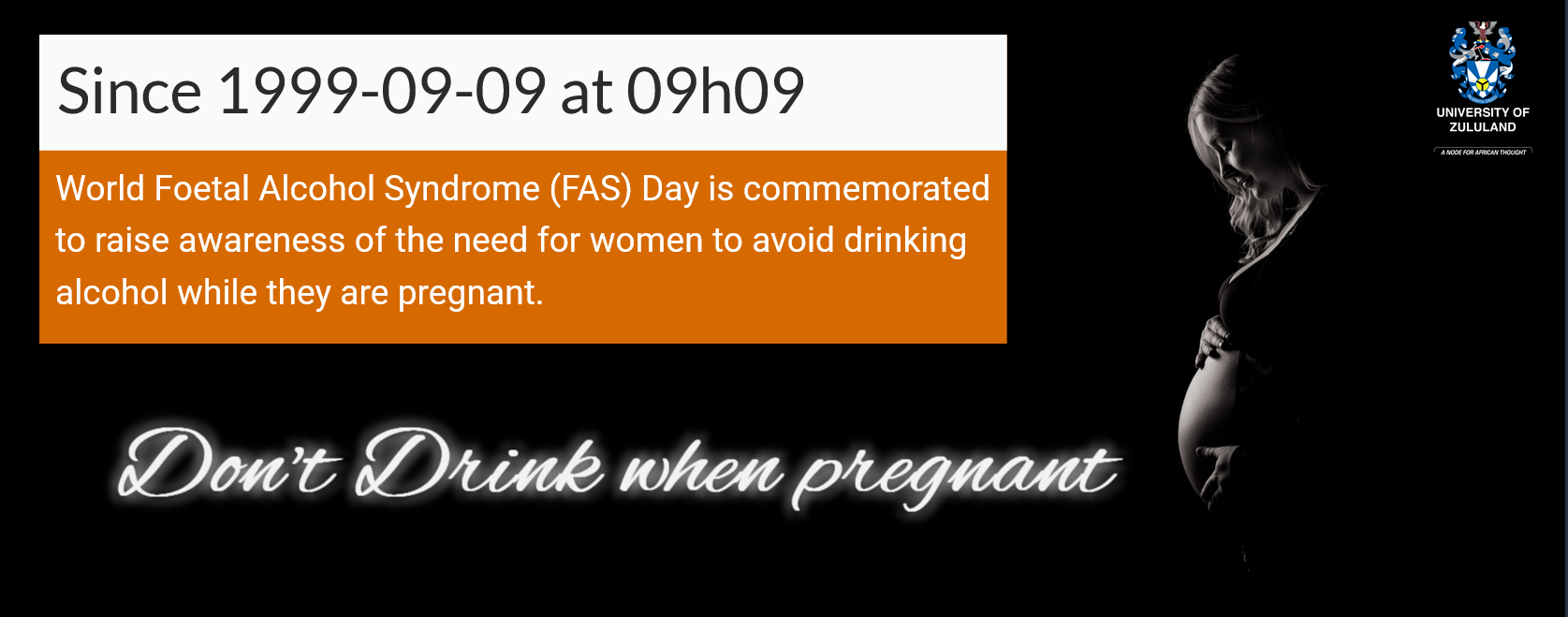OPINION PIECE: World Foetal Alcohol Syndrome (FAS) Day

Since 1999, each year at nine (9) minutes past nine (9) on the ninth (9) day of the ninth (9) month, the World Foetal Alcohol Syndrome (FAS) Day is commemorated to raise awareness of the need for women to avoid drinking alcohol while they are pregnant. The problem of foetal alcohol syndrome (FAS) is associated with mothers who consume alcohol during pregnancy. Consequently, the foetus gets exposed to alcohol through the blood stream, causing damage to the foetus while it is still in the womb. This often affects the central nervous system and exposes the unborn baby to a considerable risk of brain damage.
In most cases, the children exposed to FAS experience a variety of learning disorders at school. Several studies have confirmed a high prevalence of FAS in South Africa. Equally, the World Health Organization (WHO) has listed South Africa as having the highest reported prevalence rate of FAS in the world. The WHO statistics report that 111 out of every 1000 people in the country are affected by FAS.
Consuming alcohol and abusing other drug substances has also been rampant among young pregnant women and pregnant teenagers who become mothers. They are often unable to take care of themselves and their children who are born with FAS as it creates a continuous cycle of health, social and economic challenges. This may lead to the problem of young mothers not completing their secondary and tertiary education, adding to the existing drop-out rates in the education system.
This 9-9-9-9 special day clearly raises community awareness among everyone and especially pregnant women. The education and awareness seeks to discourage pregnant women from drinking alcohol and abusing substances during pregnancy. In this regard, the University of Zululand, through the Faculty of Humanities and Social Sciences collaborative research project with the Nelson Mandela Children’s Fund (NMCF) is currently focusing on “Addressing child mortality through awareness of the importance of the first 1000 days of the life of the child” which is from conception to the child’s second birthday. This is significant for child development. This partnership has a common goal of realising the rights of children to protection, health, economic resilience, empowerment, and leadership support in all circumstances including strengthening the research on child advocacy and rights. This contributes to the advancement and creation of knowledge to improve the safety and wellbeing of children, young people, families and communities. As the University community, we are concerned with how children continue to grapple with unprecedented hardships that makes them vulnerable. It is, therefore, necessary to raise awareness among our communities against the consumption of alcohol during pregnancy in order to avoid the damaging and often irreversible effects on the unborn children.
Prof Lulu Shokane
Professor: Social Work
Deputy Dean Research, Innovation and Internationlisation
Faculty of Humanities and Social Sciences















Leave a Reply